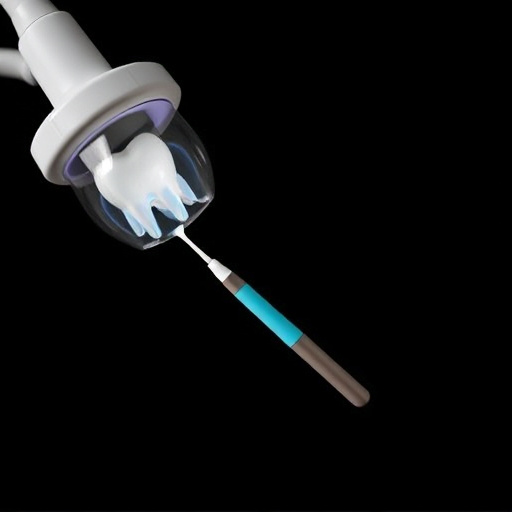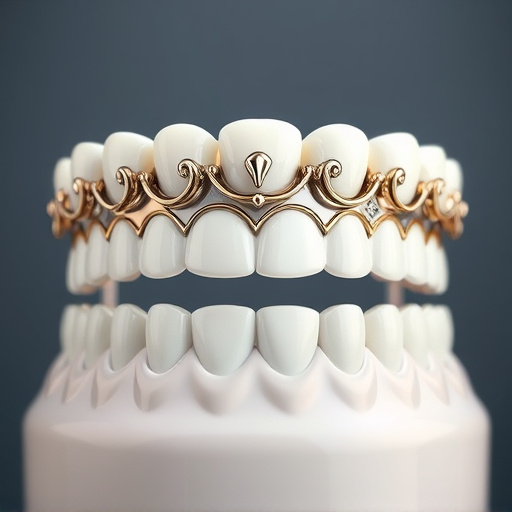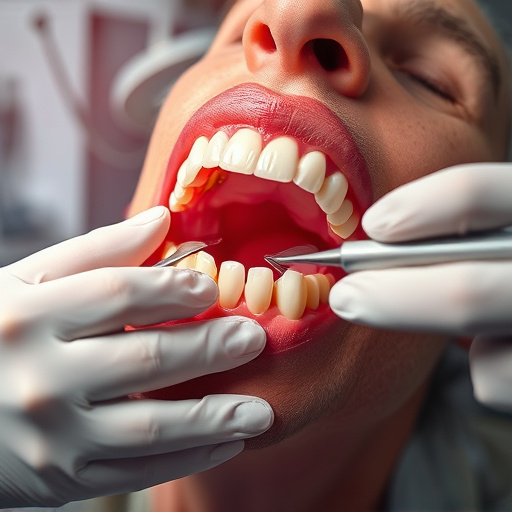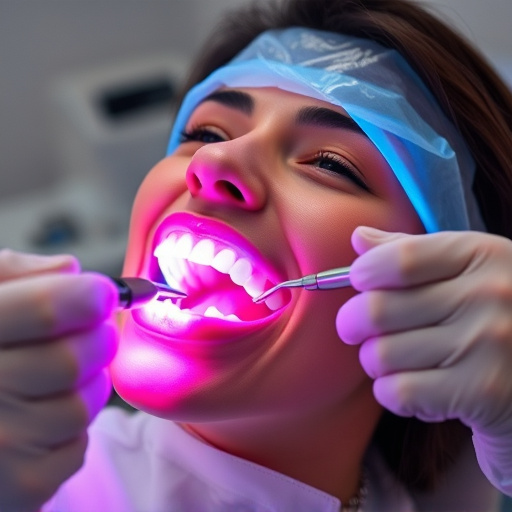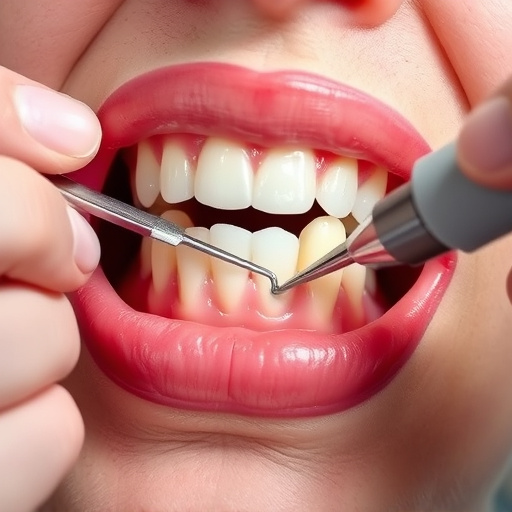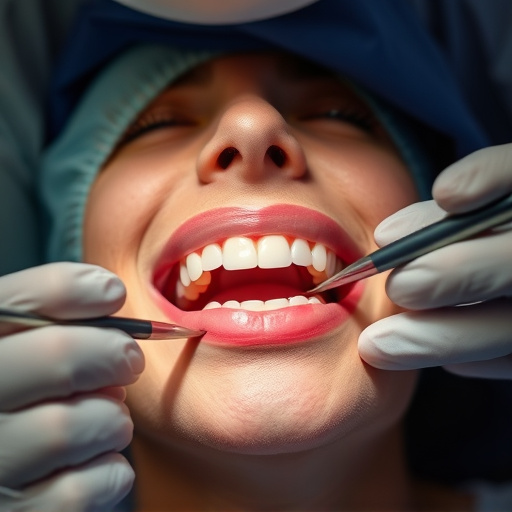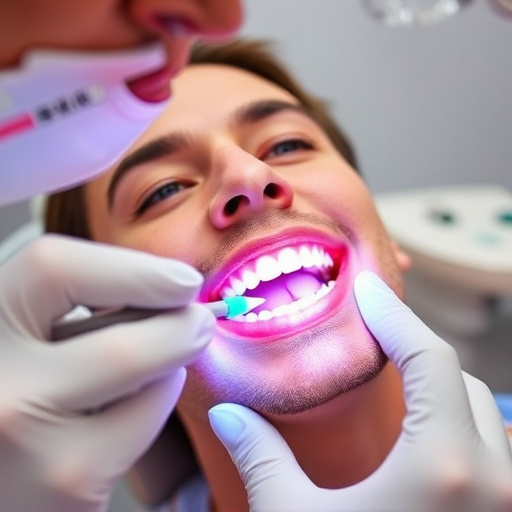Snoring, a common sleep disorder caused by partial airway blockage, can lead to various health issues. Treatment options range from lifestyle changes like exercise and diet adjustments to medical interventions such as CPAP machines, nasal strips, oral appliances, and in severe cases, surgery. Dental devices, similar to athletic mouthguards, are non-invasive options that keep the jaw forward, preventing nasal passage collapse and reducing snoring. Specialized children's devices also exist without causing discomfort or hindering oral development, showcasing diverse solutions for effective snoring treatment.
Snoring isn’t just a noisy disturbance—it’s a symptom of an underlying condition that can impact overall health. Understanding the causes and effects of snoring is the first step towards finding effective snoring treatment options. From non-invasive techniques like behavioral changes and oral appliances to medical procedures, this article explores diverse snoring treatment options with proven benefits. Discover how you can reclaim peaceful sleep and improve your quality of life.
- Understanding Snoring: Causes and Impact
- Exploring Non-Invasive Snoring Treatment Options
- Effective Snoring Solutions: Lifestyle Changes and Medical Procedures
Understanding Snoring: Causes and Impact
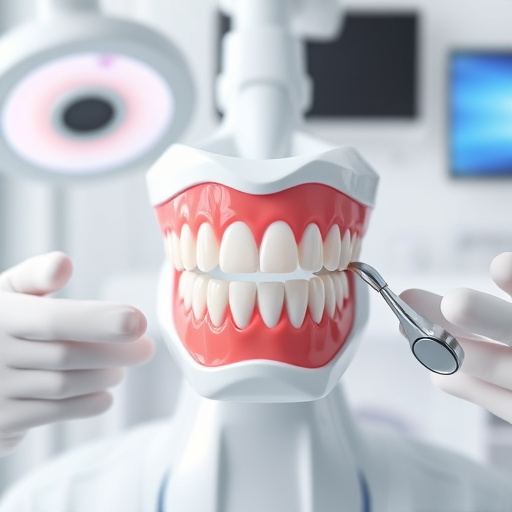
Snoring is a common sleep disorder that occurs when the airways are partially blocked during breathing, leading to vibrations in the throat and nasal passages. These vibrations produce the characteristic snoring sound. While it might seem like a harmless nuisance, snoring can significantly impact an individual’s quality of life. It not only disrupts peaceful sleep but also has potential long-term health effects. Chronic snoring is associated with conditions such as sleep apnea, high blood pressure, heart disease, and cognitive impairment.
The causes of snoring are multifaceted, ranging from anatomical factors like a narrow airway or enlarged tonsils to lifestyle choices including obesity, smoking, and excessive alcohol consumption. Even certain medical conditions, such as nasal allergies or a history of sinus problems, can contribute to snoring. Addressing these underlying causes is crucial for effective snoring treatment options. Preventive dentistry and general dentistry practices often emphasize the importance of oral health in managing snoring, occasionally suggesting tooth extractions as a last resort when other interventions have been ineffective.
Exploring Non-Invasive Snoring Treatment Options

Many people suffering from snoring often turn to non-invasive treatments as a first step to improve their sleep quality and overall health. Exploring these options is a sensible approach, especially considering the potential risks associated with more invasive procedures. One such treatment involves dental devices, which can be effective in managing mild to moderate snoring. These custom-fitted mouthpieces, similar in concept to athletic mouthguards, are designed to keep the jaw in a forward position during sleep, preventing the nasal passages from collapsing and reducing snoring noises.
Compared to surgical interventions or complex appliances, dental implants offer a more accessible and comfortable solution. They are easily adjustable and can be a good choice for those looking for a long-term, non-surgical snoring treatment. Additionally, for parents concerned about their children’s snoring (a common issue in pediatric dentistry), there are specialized devices designed to address this problem without causing discomfort or hindering oral development. These options showcase the diverse range of non-invasive snoring treatment alternatives available today.
Effective Snoring Solutions: Lifestyle Changes and Medical Procedures
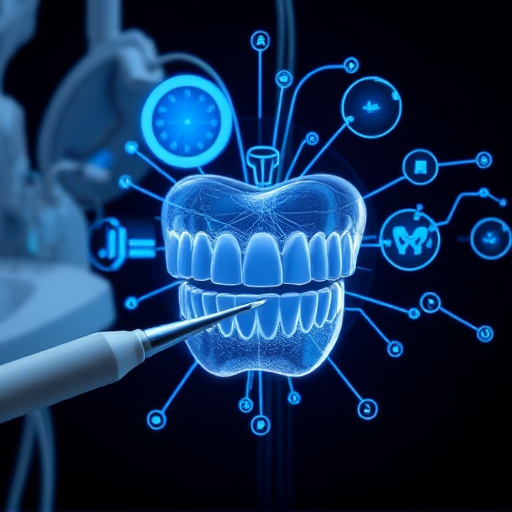
Snoring can be a persistent issue with significant impacts on quality of life. Fortunately, there are numerous snoring treatment options available that offer real benefits for both adults and children. Effective snoring solutions span lifestyle changes and medical procedures. On the lifestyle side, maintaining a healthy weight through regular exercise and a balanced diet significantly reduces snoring incidents. Additionally, adjusting sleep positions, avoiding excessive alcohol consumption, and refraining from smoking can all contribute to quieter nights.
For more persistent cases, medical interventions such as continuous positive airway pressure (CPAP) machines, nasal strips, or oral appliances provide targeted solutions. These devices work by keeping the airways open during sleep, preventing the relaxation of muscles in the throat that contributes to snoring. In some severe instances, surgical procedures like turbinate reduction or uvulopalatopharyngoplasty may be recommended. Unlike procedures related to children’s dentistry (e.g., dental cleanings, tooth extractions), these snoring treatment options address the underlying causes of snoring, offering lasting relief and improved overall health.
Snoring can significantly impact quality of life, but exploring various snoring treatment options offers real benefits for those affected. From non-invasive techniques like oral appliances and nasal strips to lifestyle changes such as weight loss and position adjustments, to more advanced medical procedures, there are effective solutions available. By understanding the causes of snoring and choosing the right treatment approach, folks can restore peaceful sleep and enjoy a healthier, more vibrant life.


